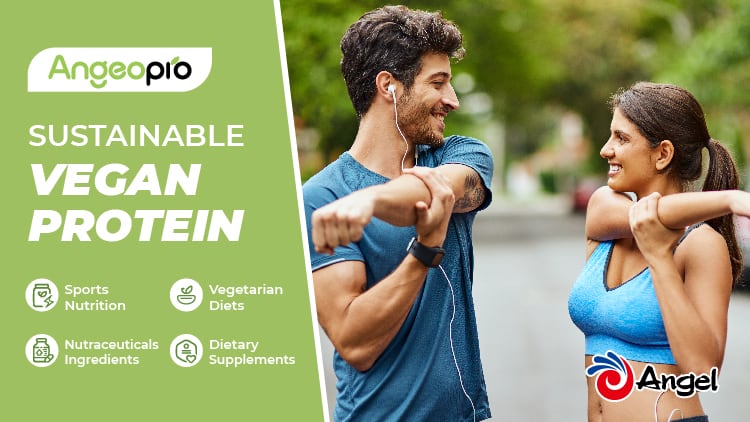The common cold is one of the most prevalent infectious diseases in the world. Although short lived, lasting just a few days, the respiratory illness has a detrimental impact on productivity at work and associated medical costs. According to the cross-sectional European Common Colds study (COCO), patients use as many as 12 items on average for self-care to battle symptoms including a sore throat and lingering cough.1
Flu symptoms, meanwhile, can be moderate-to-serious, ranging from fatigue and muscle and body aches to fevers. In some cases, the illness can result in life-threatening complications such as pneumonia and myocarditis. A collection of 29 studies involving more than 11,000 children and adults have shown that taking supplements containing vitamin C every day will not protect most people from colds: it only slightly shortens, by about 10%, the amount of time that they are ill.2
Yeast beta-glucans for immunity support
Since the onset of the COVID-19 pandemic, and with consumers leading ever more challenging lifestyles, immune health has become a priority for many. As a result, products containing ingredients designed to boost the immune system are attracting attention among all age groups, from children to the elderly, and across a range of demographics of people seeking to improve their immunity, from sports and fitness enthusiasts to those leading high-pressured, busy lives.
One natural compound that has been studied for its efficacy in preventing the common cold and relieving flu symptoms is beta-glucans – a heterogenous group of natural polysaccharides found in yeast, cereal grains, mushrooms, algae, bacteria, plants and fungi.3-5 β-glucan extracted from Saccharomyces cerevisiae (baker’s yeast) is known to have a high biological activity and thus a potent immunostimulatory effect because of its characteristic molecular structures. 6-10
When ingested, β-glucans are recognised by Dectin-1 receptors in the body, which are linked to innate immune responses, and trigger the immune cascade.11-12 This promotes the elimination of infectious agents, such as those causing sore throats. Thus, yeast beta-glucan boosts the immune system, enabling it to react quickly in the event of an infection, thereby supporting overall health and wellbeing. Beta-1,3/1,6-glucan is the most studied beta-glucan and the best documented in terms of immune stimulatory efficacy, mode of action and safety, and is deemed superior to beta-glucans from other sources.
In a randomised, double-blinded, placebo-controlled trial looking at the effect of Kerry's baker's yeast beta glucan, Wellmune®, on marathon runners, 202 healthy adults aged between 18 and 65 years completed three months of supplementation (covering pre and post marathon) with either 250mg Wellmune or a placebo, formulated into a nutritional dairy-based beverage. Any incidences of cold and flu symptoms were recorded, together with a general health questionnaire. Wellmune yeast beta glucan reduced total severity of upper respiratory tract infection (URTI) symptoms and duration of symptoms during marathon training and post-marathon participation. It also further supports the ingredient’s ability to help strengthen the immune system through a food or beverage application.13
In addition, data from all trial participants revealed a statistically significant difference between the groups for sleeping well. Another trend in the β-glucan group was a reduction in days taken off work: the β-glucan group had less than half the time off work compared to the placebo, with 0.3 days compared with 0.7 days respectively (p = 0.053).

Yeast beta-glucan applications
Yeast extract manufacturer Angel Yeast developed beta-glucan from Saccharomyces cerevisiae (baker’s yeast) 20 years ago for use in a wide variety of foods. Angel Yeast beta-glucan is a long chain of polysaccharide, containing the main chain of β-1,3-glucan and branched chain of β-1,6-glucan, with a molecular weight of around 500-1000KD.
Bettcan yeast beta-glucan is produced in accordance with the highest certified quality standards. It is Kosher and Halal certified and safe for those with yeast allergies because the allergen components are completely removed during the production process. As a pure and natural ingredient, it is also suitable for vegetarian and vegan products.
Dairy products Yeast beta-glucan is a powerful immune-enhancing agent for dairy products. There is huge consumer demand for dairy products with added benefits: worldwide consumption of functional dairy ingredients is predicted to surge at a CAGR of 7.5% through to 2032.14 Yeast beta-glucan can be used as a functional ingredient in yogurt, yogurt beverages, milk and milk beverages.
Sports nutrition Sports nutrition products are attracting a wider audience of health-conscious consumers seeking a healthy immune system to support active lifestyles. Research has shown that intensive exercise can suppress the immune system, compromising the body's ability to defend itself. Yeast beta-glucan helps to support healthy immune function, so athletes and everyday consumers users can recover faster from exercise. Studies have shown that the oral intake of beta-1,3/1,6-glucan improves immune function, promotes healthy inflammatory response, supports mucosal immunity and promotes respiratory health. Yeast beta-glucan is suitable across a variety of sports nutrition product formats such as energy bars, nutrition and protein bars, sports and functional drinks and powdered drinks.
Dietary supplements A rise in chronic disease and health impairment in an aging population is set to be a major global public health challenge. Medical conditions such as malignant neoplasms (cancerous tumours), peptic ulcers, chronic gastritis, chronic nephritis and diabetes are all associated with decreased body resistance in the elderly. Adding yeast beta-glucan to health foods and dietary supplements can improve the body’s immunity and resistance.
Functional foods & beverages Yeast beta-glucan can be applied to dairy products, candy, beverages, fruit juice and baked goods for a variety of health functions. Yeast beta-glucan has been applied to infant formula milk powder, functional food and drinks drinks, cookies, protein bars, nutritional snacks, probiotics, giving products a variety of health claims.
References
1. Thielmann A., Gerasimovska-Kitanovska B., Koskela TH., et al. European General Practice Research Network Working Group on Self-Care. Self-care for common colds: A European multicenter survey on the role of subjective discomfort and knowledge about the self-limited course - The COCO study. PLoS One. 2018 Apr 13;13(4): e0195564. doi: 10.1371/journal.pone.0195564. PMID: 29652899; PMCID: PMC5898731.
2. InformedHealth.org. Cologne, Germany: Institute for Quality and Efficiency in Health Care (IQWiG); 2006. Common colds: Does vitamin C keep you healthy? (Updated 2020, Oct 8).
3. Nieman DC., Henson DA., McMahon M, et al. Beta-glucan, immune function, and upper respiratory tract infections in athletes. Med Sci Sports Exerc. 2008;40:1463-1471.
4. Vetvicka V., Terayama K., Mandeville R., et al. Pilot study: orally administered yeast β1,3-glucan prophylactically protects against anthrax infection and cancer in mice. JANA. 2002. 5
5. Stier H, Ebbeskotte V, Gruenwald J. Immune-modulatory effects of dietary Yeast Beta-1/,3/1,6-D-glucan. Nutr J. 2014;13:38.
6. Stier H, Ebbeskotte V, Gruenwald J. Immune-modulatory effects of dietary Yeast Beta-1/,3/1,6-D-glucan. Nutr J. 2014;13:38.
7. Zekovic D, Kwiatkowski S, Vrvic MM, et al. Natural and modified (1-3)-beta-D-glucans in health promotion and disease alleviation. Crit Rev Biotechnol. 2005;25:205-230.
8. Zabriskie HA, Blumkaitis JC, Moon JM, et al. Yeast beta-glucan supplementation downregulates markers of systemic inflammation after heated treadmill exercise. Nutrients. 2020;12(4):1144.
9. Chan GCF, Chan WK, Sze DMY. The effects of β-glucan on human immune and cancer cells. J Hematol Oncol. 2009;2.
10. Carpenter KC, Breslin WL, Davidson T, et al. Baker’s yeast β-glucan supplementation increases monocytes and cytokines post-exercise: implications for infection risk? Br J Nutr. 2013;109:478-486.
11. Zabriskie HA., Blumkaitis JC., Moon JM., et al. Yeast Beta-Glucan Supplementation Downregulates Markers of Systemic Inflammation after Heated Treadmill Exercise. Nutrients. 2020 Apr 19;12(4):1144. doi: 10.3390/nu12041144. PMID: 32325856; PMCID: PMC7230631.
12. Talbott S and Talbott J. Effect of BETA 1, 3/1, 6 GLUCAN on Upper Respiratory Tract Infection Symptoms and Mood State in Marathon Athletes. J Sports Sci Med. 2009 Dec 1;8(4):509-15. PMID: 24149590; PMCID: PMC3761532.
13. Mah E., Kaden VN., Kelley KM., et al. Beverage containing dispersible yeast β-glucan decreases cold/flu symptomatic days after intense exercise: A randomized controlled trial. J Diet Suppl. 2020:17:200-210.








